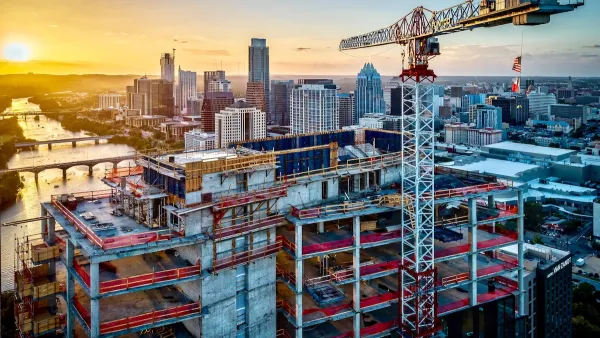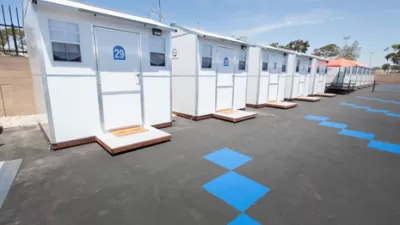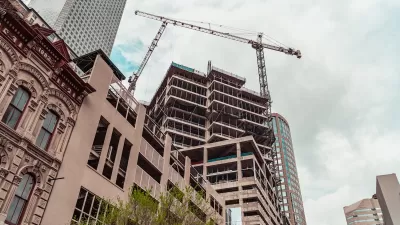Few in Los Angeles have the opinion that the lack of housing supply is driving the homeless crisis in the city and around the state.

The Los Angeles Times surveyed Californians about what they thought was driving the state’s homeless crisis, and many who work on the issue were surprised by the results. "Only 13 percent of respondents blamed the crisis on 'too little homebuilding.' Twice as many people included 'lack of funding for affordable housing' or 'lack of rent control' as top explanations for the problem," Rick Jacobus writes for Shelterforce. This seems counter to the basic principles of economics. 'Both in the comments section on the LA Times website and on Twitter, commenters wondered what it was about supply and demand that voters can’t quite understand,' Jacobus writes.
Jacobus argues that, while increased supply should be part of the strategy, the story is more complicated than that. Jacobus contends that housing is composed of many distinct commodities and changing the supply of luxury apartments is unlikely to impact costs for some people on the lower end of the market. He goes even further, writing: "My view is that there are sensitive neighborhoods where fancy new buildings can accelerate gentrification, but there are also many more neighborhoods where that is not much of a risk."
To make a dent in housing costs Jacobus argues: "The most compelling policy implication of this switch to a segmented view of housing markets is that we need to do more to encourage development of new buildings that are targeted for lower- and middle-income households." In Jacobus’ view, voters don’t believe that developers and the free market will solve the housing crisis, so to make a more compelling case for development, politicians must be willing to hold private partners to their promises when it comes to building affordable housing and must be honest about the challenges presented by working with these partners.
FULL STORY: Why Voters Haven’t Been Buying the Case for Building

Planetizen Federal Action Tracker
A weekly monitor of how Trump’s orders and actions are impacting planners and planning in America.

Map: Where Senate Republicans Want to Sell Your Public Lands
For public land advocates, the Senate Republicans’ proposal to sell millions of acres of public land in the West is “the biggest fight of their careers.”

Restaurant Patios Were a Pandemic Win — Why Were They so Hard to Keep?
Social distancing requirements and changes in travel patterns prompted cities to pilot new uses for street and sidewalk space. Then it got complicated.

Platform Pilsner: Vancouver Transit Agency Releases... a Beer?
TransLink will receive a portion of every sale of the four-pack.

Toronto Weighs Cheaper Transit, Parking Hikes for Major Events
Special event rates would take effect during large festivals, sports games and concerts to ‘discourage driving, manage congestion and free up space for transit.”

Berlin to Consider Car-Free Zone Larger Than Manhattan
The area bound by the 22-mile Ringbahn would still allow 12 uses of a private automobile per year per person, and several other exemptions.
Urban Design for Planners 1: Software Tools
This six-course series explores essential urban design concepts using open source software and equips planners with the tools they need to participate fully in the urban design process.
Planning for Universal Design
Learn the tools for implementing Universal Design in planning regulations.
Heyer Gruel & Associates PA
JM Goldson LLC
Custer County Colorado
City of Camden Redevelopment Agency
City of Astoria
Transportation Research & Education Center (TREC) at Portland State University
Camden Redevelopment Agency
City of Claremont
Municipality of Princeton (NJ)





























